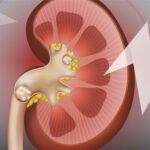Sexual Issues After a Traumatic Brain Injury
Despite advances in medical science, sexual dysfunction remains a major concern for many men and women. In fact, 31% of men and 43% of women experience some type of sexual difficulty at some point during their lifetime. Fortunately, these issues are often treatable. There are various types of sexual dysfunction, and continued research continues to improve the understanding of how these issues affect both men and women. Some of the most common sexual issues include:
While most studies have focused on the causes of individual sexual dysfunction and the treatment of that disorder, a new generation of researchers are turning the focus from the individual to the relationship. In many cases, sexual dysfunction is a result of a physical disorder that has lasted for years, and the relationship between a man and woman may become strained. But the good news is that advances in research have uncovered innovative ways to help couples deal with their problems.
Interestingly, many adolescents and adults do not feel that sexual dysfunction is a significant impediment to their sex lives. Despite this, women are more likely than men to experience issues during intercourse. The most common problems impacting women are pain during intercourse, difficulties reaching orgasm, and lack of pleasure. Thankfully, there are treatments that are available for all types of sexual dysfunction. But a lot of future research is needed to understand what causes these issues and how to prevent them.
There are many reasons why someone may experience changes in their sexual functioning following a TBI. You can work to remedy these problems on your own or seek professional help. It is important to remember that sexuality is a normal part of human functioning and you should be treated for it the same way as any other medical condition. Listed below are the most common problems that people with a traumatic brain injury may experience during and after a sexual activity.
Diabetes and cancer may also affect the way a woman experiences sex. Diabetes may lower her libido and sex drive, reducing the chances of an orgasm. Diabetic neuropathy also affects sexual function. A person with diabetes may feel pain when sexual stimulation is too strong and can lead to erectile dysfunction and decreased orgasm, which could ultimately require a visit to a South Florida erection clinic for a diagnosis. Ultimately, this may harm the relationship. Despite the fact that the patient is aware of her condition, it is important to talk about the impact of the disease on their sex life.
Although the cause of PTSD is unknown, a study published in the journal of psychiatry has found that combat veterans with PTSD have an increased incidence of sexual dysfunction. In some cases, psychiatric medications are also responsible. If you’re concerned about your loved one’s health, you should seek medical care for any related conditions. You can learn about the various treatments for sexual dysfunction in men and women suffering from PTSD.
Sexual issues may be caused by a number of factors, including relationship problems, anger at your partner, or boredom with a romantic relationship. Talking to a licensed mental health professional about your sexual problems can help you find the right solution for your relationship. Your doctor may also recommend testing to rule out underlying health conditions that could be affecting your sex life. Listed below are some things to consider before visiting a mental health professional.
Many people are worried about ‘normal’ sexuality due to the idealisation of sex in the media. Immigrant couples often live with extended families and aren’t afforded privacy. This same concept can apply to lesbian couples. However, if you’re unsure of what to expect from a sexual health professional, it may help to consult a specialist. Sexual issues affect both men and women, and treatment must be individualized to meet each person’s needs.
If you’ve suffered a traumatic brain injury, you may have sexual problems. If you’re having difficulty expressing your sexuality, you should consider seeking medical advice. If you have been suffering from depression, stress, or anxiety, your doctor may suggest changing certain medications. Changing medications under the care of a medical professional may be a good option, as long as you don’t overdose on them. You might also want to consider therapy for depression, anxiety, or stress.
A therapist’s role in treating sexual dysfunction is important, but it’s only a small part of the treatment process. A therapist must also take into account the general relationship as a whole. Sometimes, sexual problems are maintained by underlying conflict in the general relationship. During therapy, your therapist must be aware of the way you and your partner communicate and how you deal with stress. If you’re not careful, it could lead to conflict and breakups.
People with diabetes have increased chances of experiencing urinary tract infections, causing discomfort and pain during sex. Diabetic neuropathy is another cause of sexual problems. Diabetic neuropathy affects the nerves in the body, which causes erectile dysfunction, genital numbness, and decreased orgasm. Women with diabetes may find it difficult to express themselves sexually, making them give up their sex life. While this may be the case for some women, lifestyle changes and medications can help those with diabetes stay active and enjoy their relationships.
The traumatic events a military veteran experiences can lead to the development of a number of sexual dysfunction. Erectile dysfunction, premature ejaculation, and overall disinterest in sex are common complaints. The rate of erectile dysfunction is higher among males than in females, but this isn’t the only cause. Studies suggest that psychiatric medicines may have an impact on the level of sexual dysfunction in military veterans with PTSD.








